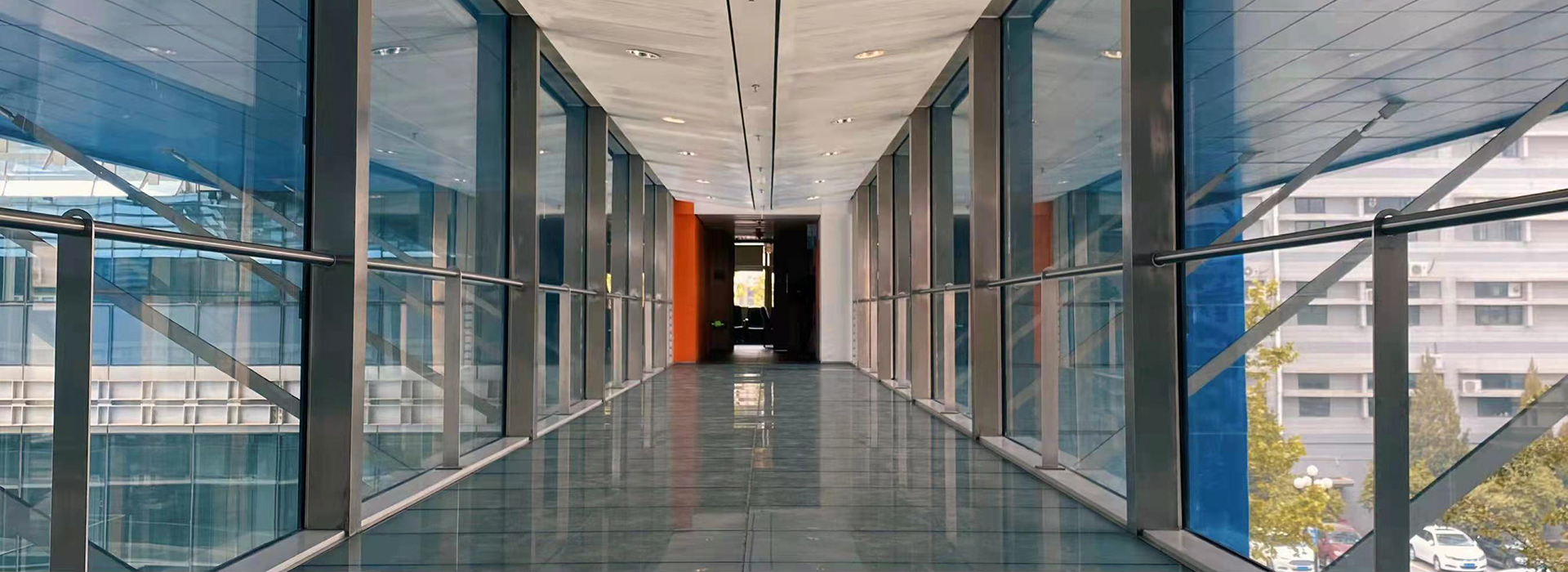The 6th Model Climate Change Conference of Parties (MCCCOP 6) was successfully held at the School of Environment, Tsinghua University from September 19 to 20. Its aim was to raise college students’ awareness of the importance of China’s participation in the global governance of climate change, and to improve their ability to take part in climate change negotiations. The conference was hosted by the School of Environment (SOE) in Tsinghua University (THU) and the School of Global Governance (SGG) in Renmin University of China (RUC), undertaken by RISE and the Global Environment Program (GEP) of Tsinghua University, and supported by Center for Global Competence Development, China Youth Climate Action Network (CYCAN) and Lao Niu Foundation.
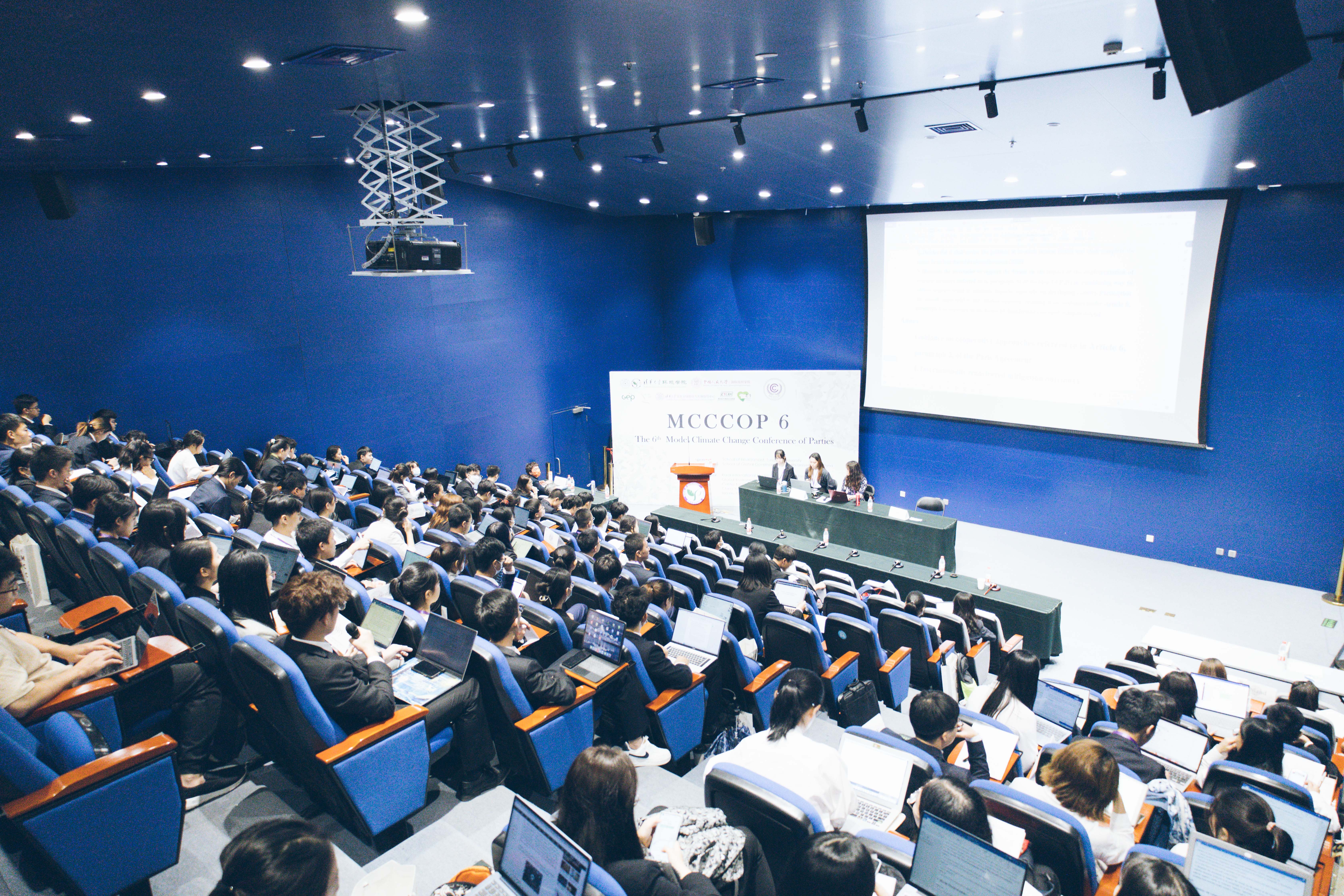
MCCCOP 6 Conference Site
The opening ceremony was held on the morning of the 19th. Attendees include Liu Shuming, Chairman of School Council; Xi Jinying, Vice Chairman of School Council; Cui Shoujun, Vice Dean of SGG, RUC; Han Fei, Office Director of SGG, RUC; Wang Zhijia, former Special Coordinator of the United Nations Environment Programme (UNEP); Xue Yuxue, former Director of the UNDP Country Office in Afghanistan and Indonesia; Gao Xiang, Director of the International Policy Department of the National Center for Climate Change Strategy and International Cooperation (NCSC), MEE; Marie Claire, President of YOUNGO (International Youth Organization) of UNFCCC; representatives from Inner Mongolia Environmental Publicity and Education Center and Lao Niu Foundation; and 153 student representatives from 47 universities (including high schools) across China. The guests and all participants watched the promotion video of the conference titled “Addressing Climate Change, We Are Taking Action”.
In his speech, Liu Shuming expressed his warm congratulations on the conference. He pointed out that 2021 was an important year for global environmental cooperation, because the year witnessed the convening of the 5th United Nations Environment Assembly, the 7th World Conservation Congress, COP 15 of the Convention on Biological Diversity, COP 26 of the UNFCCC, and other conferences, during which the international community showed a strong will to unite and protect our planet Earth. Liu hoped that the event could help students enhance their professional competence, deepen their understanding of global issues, and strengthen their sense of responsibility as the younger generation, and thus encourage them to become international inter-disciplinary talents that can shoulder the important task of shaping a better future for our motherland. Liu also expected more cooperation opportunities between the School of Environment of THU and School of Global Governance of RUC, so that they could work together to cultivate talents with a broad international perspective on global governance.
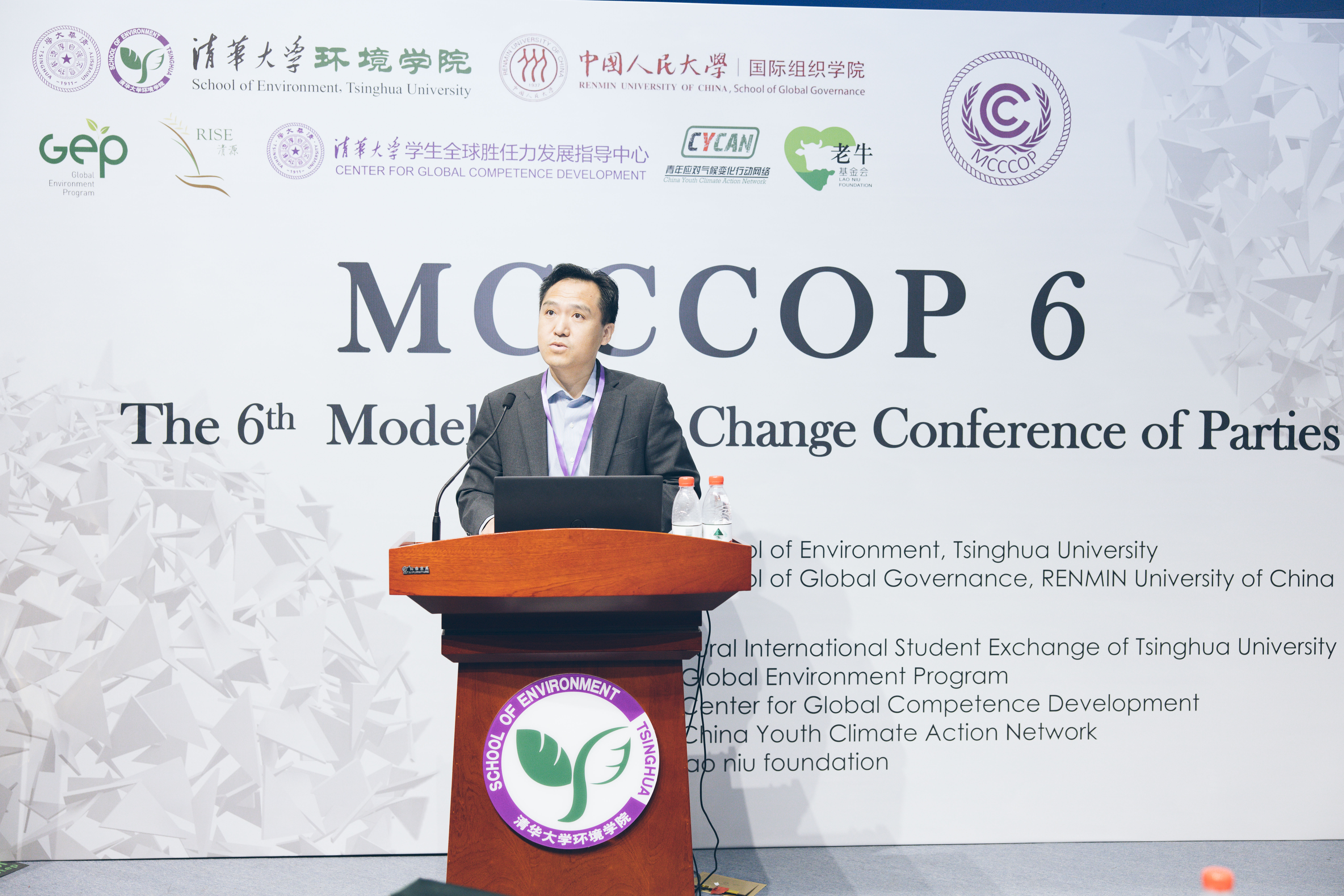
Speech by Liu Shuming, Chairman of School Council, SOE
According to Cui Shoujun’s speech, the SGG of RUC has always been committed to cultivating internationally-oriented and inter-disciplinary talents on global governance who can work for the international strategic development of China in the future. By co-organizing MCCCOP 6, both sides had not only strengthened cooperation in cultivating talents on global governance, but also enhanced the students’ ability of climate negotiation through immersive experience, which laid a solid foundation for them to join international organizations and make China’s voice heard in the future.
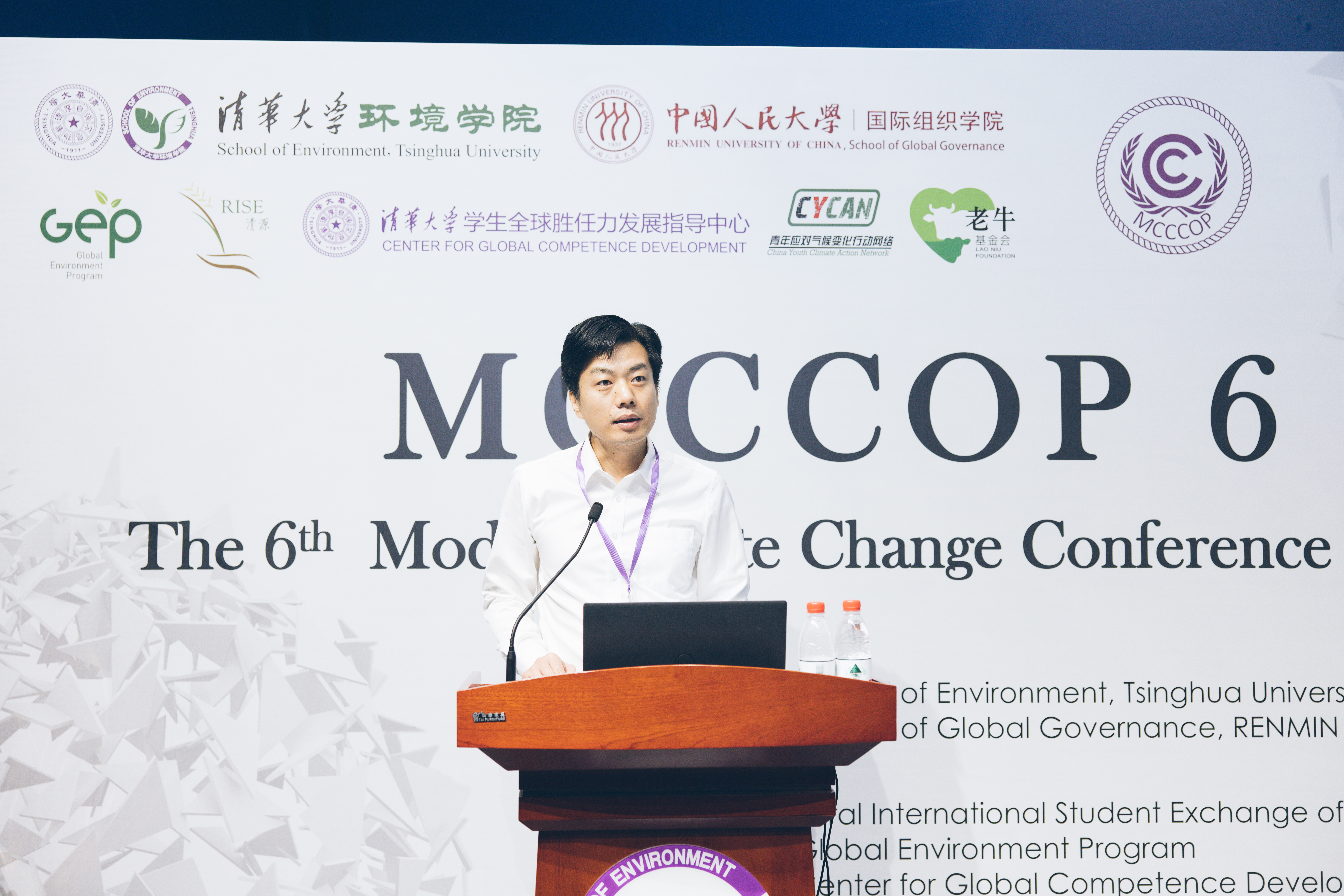
Speech by Cui Shoujun, Vice Dean of SGG, RUC
In her online message, Marie Claire attached great importance to environmental protection and sustainable development, and pointed out the unique role of youth in climate change: youth should not just be passive “recipients” of future climate change, but more positive “actors” to fight against climate change now. She described her experience leading associations for climate action, sustainable development, youth and women empowerment in her home country Switzerland, and her involvement in negotiations on technology transfer and gender issues since COP25. She believes that MCCCOP 6 is a good opportunity for youth and the public to learn about international climate negotiations. During the negotiation, participants should not only think for the country they represent, but also observe the differences among countries and groups and look for cooperation. In such a way they get to experience the enormity and sense of mission carried by climate negotiations.
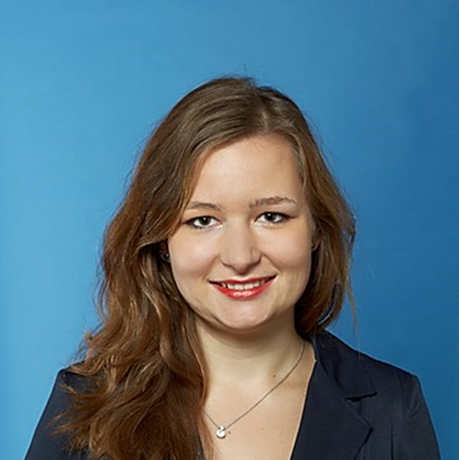
Online Speech by Marie Claire, President of YOUNGO, UNFCCC
Wang Zhijia gave high compliments to the conference. He pointed out that MCCCOP 6 really responded to the need of our time and the UN call for “Global Action on Climate Change”. It also allowed students to learn the rules and requirements of climate negotiation, encourage them to seek common interests of all parties, and eventually enhance the sense of responsibility and love for one’s country among young students. At the end of his speech, Wang looked forward to witnessing the development of future Chinese climate negotiators with the attendees.
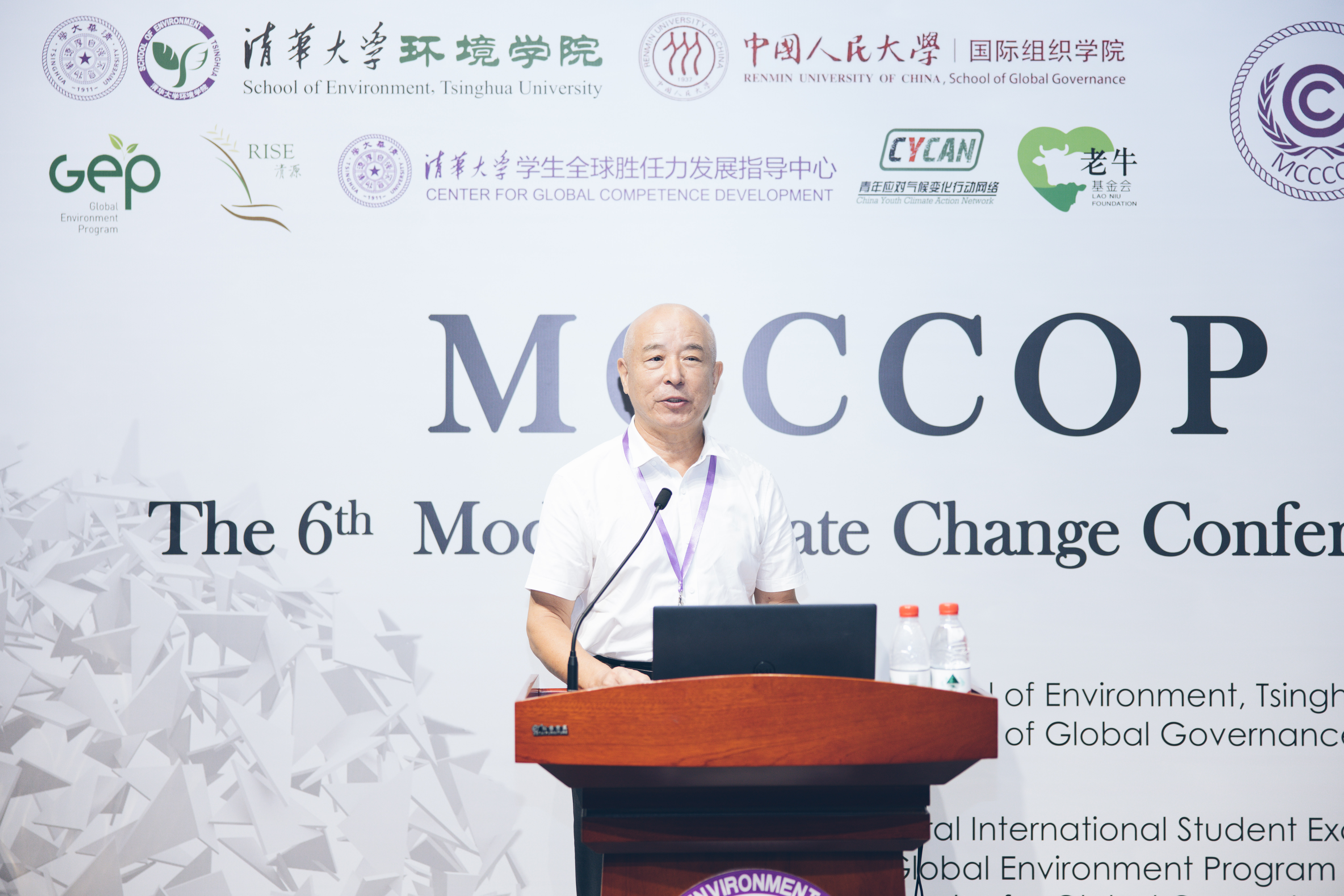
Speech by Wang Zhijia, former Special Coordinator of the UNEP
Zhou Yuchen, General Secretary of MCCCOP 6 and a student from GEP of Tsinghua University, shared his experience on preparing for the conference. He hoped that every attendee could experience what real climate conferences are like through MCCCOP 6, and explore the future development of the Paris Agreement in the discussion. As mentioned by Zhou, the conference was carried out offline because face-to-face discussions tend to be more intense and in-depth. He wished that everyone could have pleasant experience at the mock conference and fall in love with it.
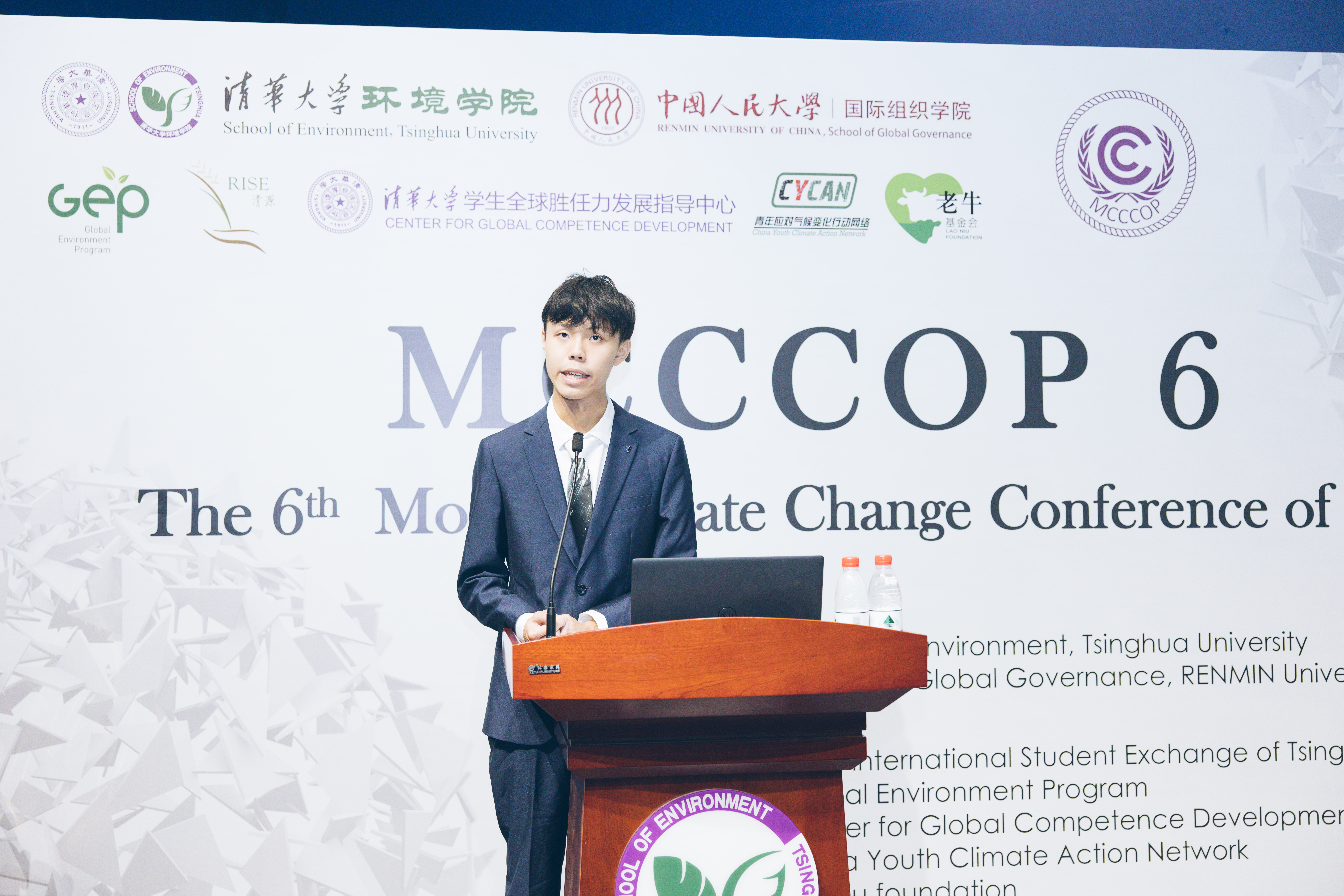
Speech by Zhou Yuchen, university student and General Secretary of the conference
After the speeches, the guests banged the gavel, which meant that MCCCOP 6 was officially opened!
The Model Climate Change Conference is to reproduce the negotiation process of the UNFCCC, during which students representing different countries negotiated on specific issues to reach consensus while safeguarding their national interests. This year, 153 delegates, 8 chairpersons, and more than 30 preparators from Tsinghua University and RUC worked together to secure the full success of the conference.
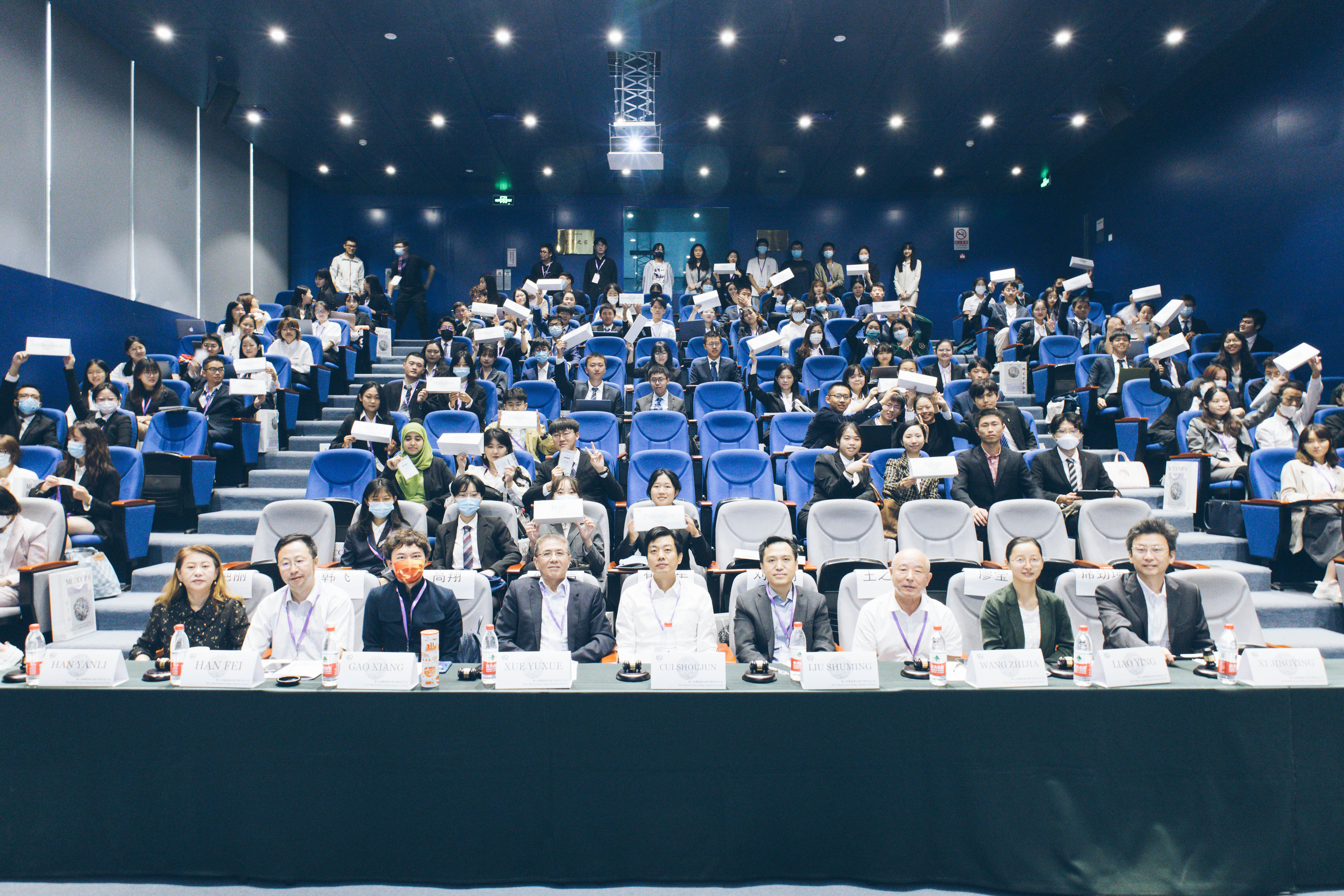
Groups of Delegates for Different Countries at MCCCOP 6
Negotiations focused on the implementation rules for Articles 6.2, 6.4 and 6.8 under Article 6 of the Paris Agreement. The first day of discussions began with Article 6.2. During informal consultations, delegates actively presented their basic standpoints on Article 6.2 and what they wanted to agree on, after which the core controversies were summarized by the Bureau. Afterwards, the delegates had a heated debate on the accounting of emission reduction outside of NDCs and the need for year-to-year adjustment. After 5 rendezvous and 2 free consultations, the delegates reached consensus on six controversies in the first half of Article 6.2, but there were still disagreements on some issues which have been put aside for the time being.
On the evening of the 19th, four roundtables were held with themes of carbon market, CCUS (Carbon Capture, Utilization and Storage), student associations, and small animals in urban areas. Guests were invited to share their views on climate change, including Liu Hongming, Senior Director of the U.S. Environmental Protection Agency Beijing Representative Office, Max Song, CEO of Carbonbase, and Zhao Ming, Associate Professor of the School of Environment.
On the 20th, several more rendezvous and free consultations were held to conclude negotiations on Article 6.2 and open informal consultations on Article 6.4. Delegates made statements on the core issues of Article 6.4 and reached agreement on the responsibility of regulators and Parties mentioned in the main part and annexes, the design and methodology of the sustainable development mechanism, and the transition to the Kyoto Protocol. Due to time limit, other issues concerning Article 6.4 could only be put on hold and continue to be negotiated in the future.
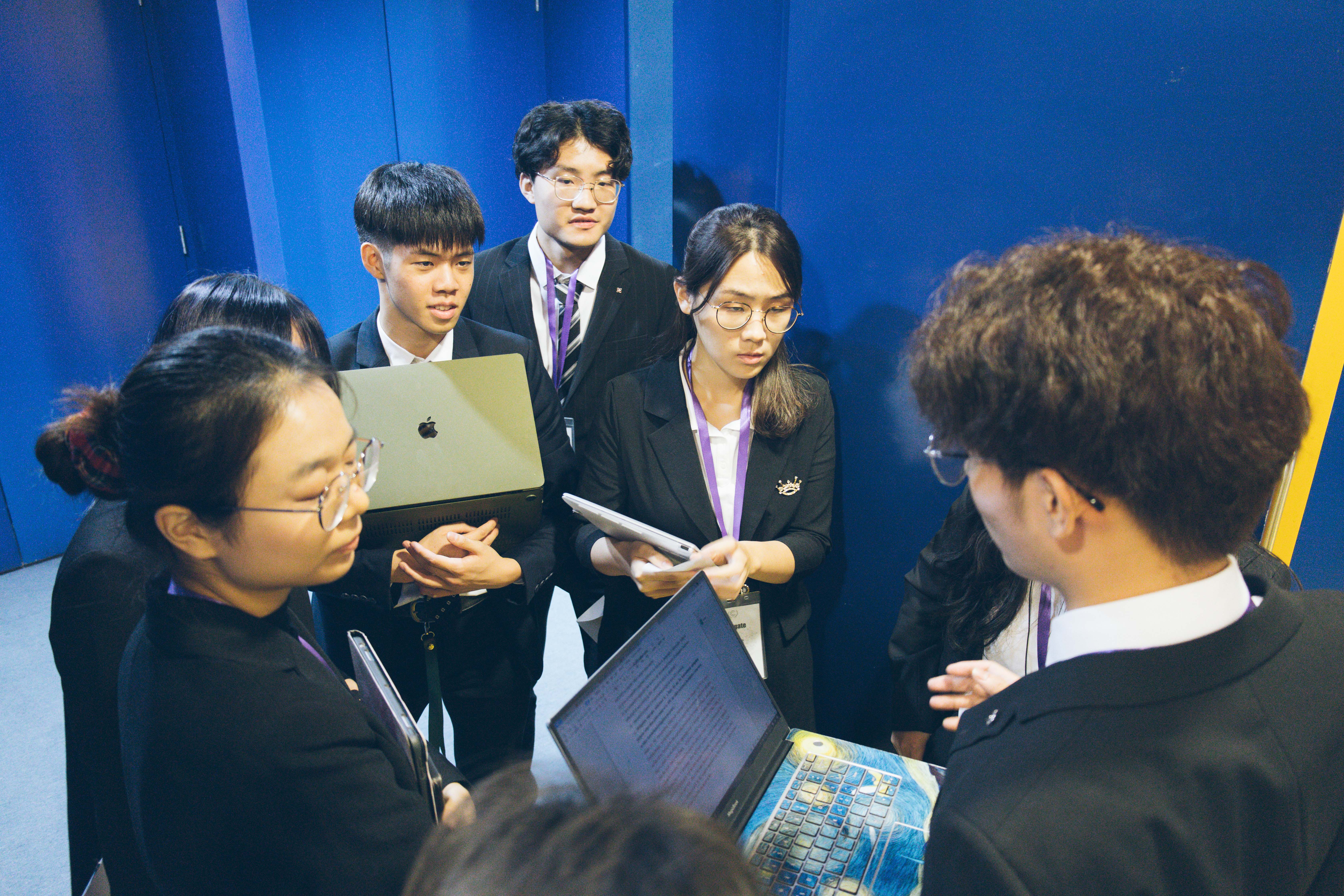
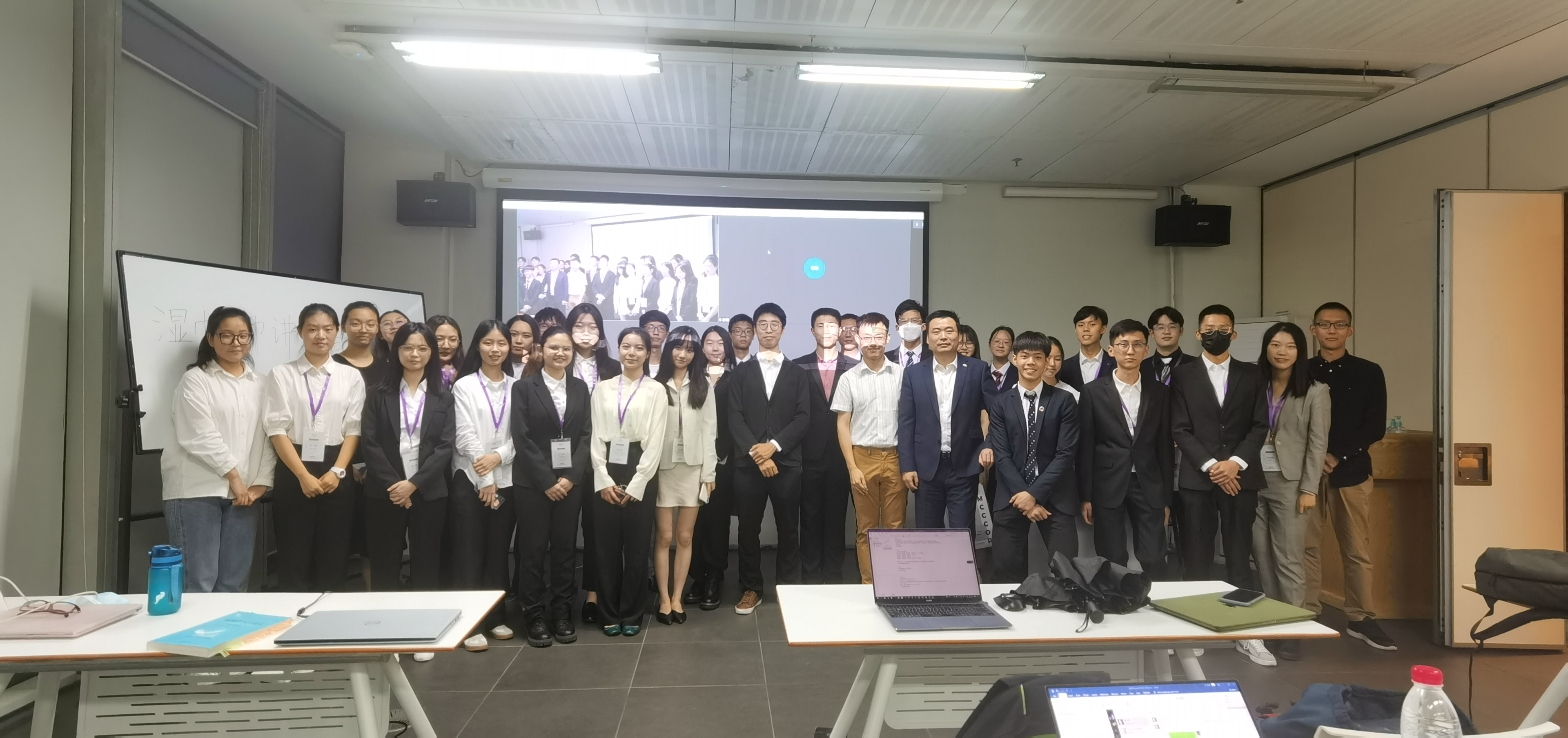
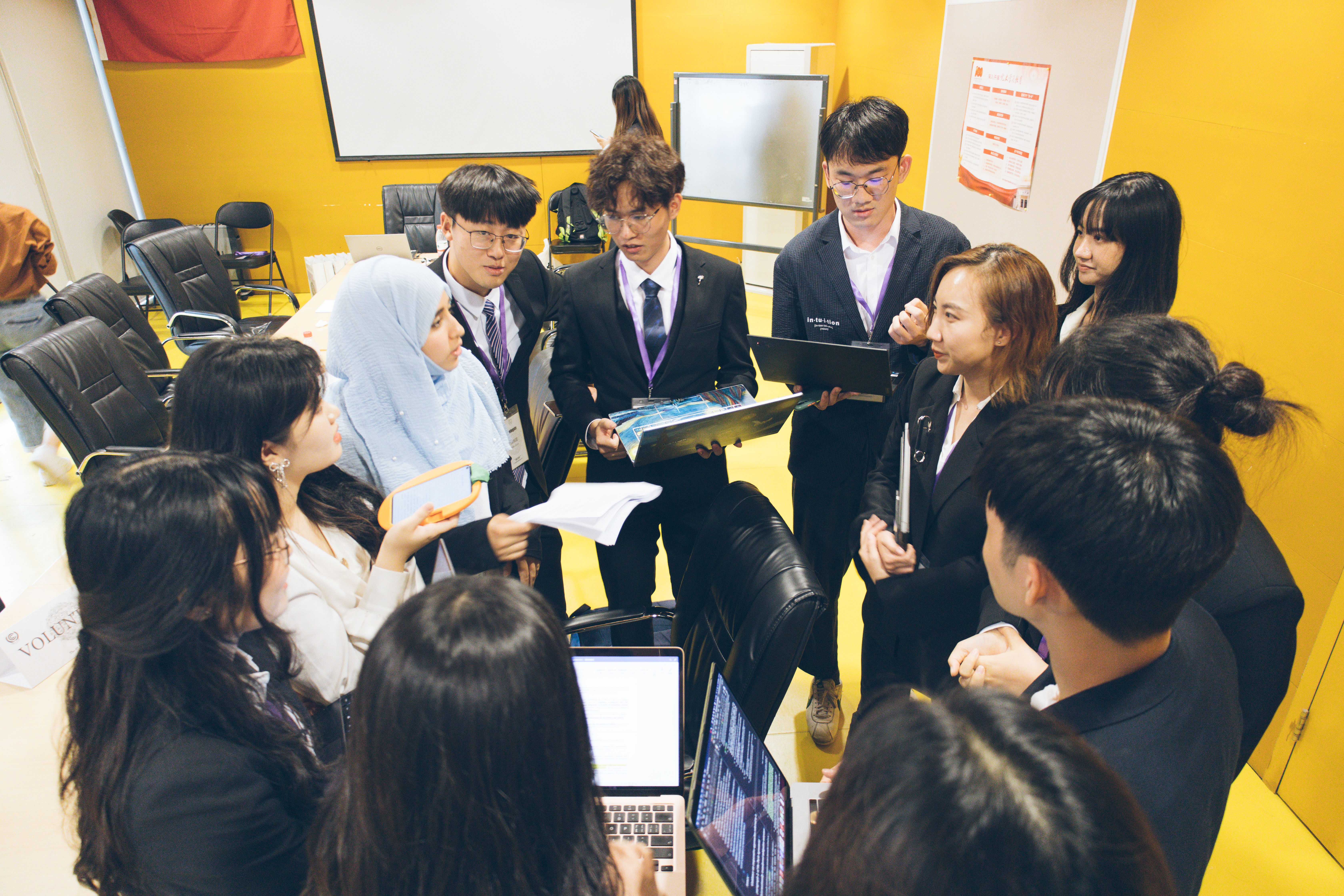
Discussions and Exchanges between Delegates
After two days of intense negotiations, the delegates submitted a draft guidance of collaboration approaches on Article 6.2 to the MCCCOP 6 plenary for consideration. A resolution was then made, which marked the successful completion of the conference. A total of 26 students received awards from the conference. Among them, the delegate for China Zhou Yuyue won the Best Delegate Award; the delegate for the U.S. Wang Ziyuan and the delegate for India Cheng Haosheng won the Outstanding Delegate Award; the delegate for France and delegate for Malaysia won the Best Paper Award; delegates for China and delegates for the US won the Best Personal Image Award; delegates for the U.S. Yang Haoting and Liu Xiaotong, the delegate for China Zhao Yilin, the delegate for Ethiopia Yu Duer, the delegate for Mexico Xu Ruohan, the delegate for Japan Li Peiyu, the delegate for Norway Wang Lei, the delegate for Egypt He Qingling, the delegate for Bhutan Liu Zining, and the delegate for Denmark Gu Yuchen received the Honorable Mention Award.
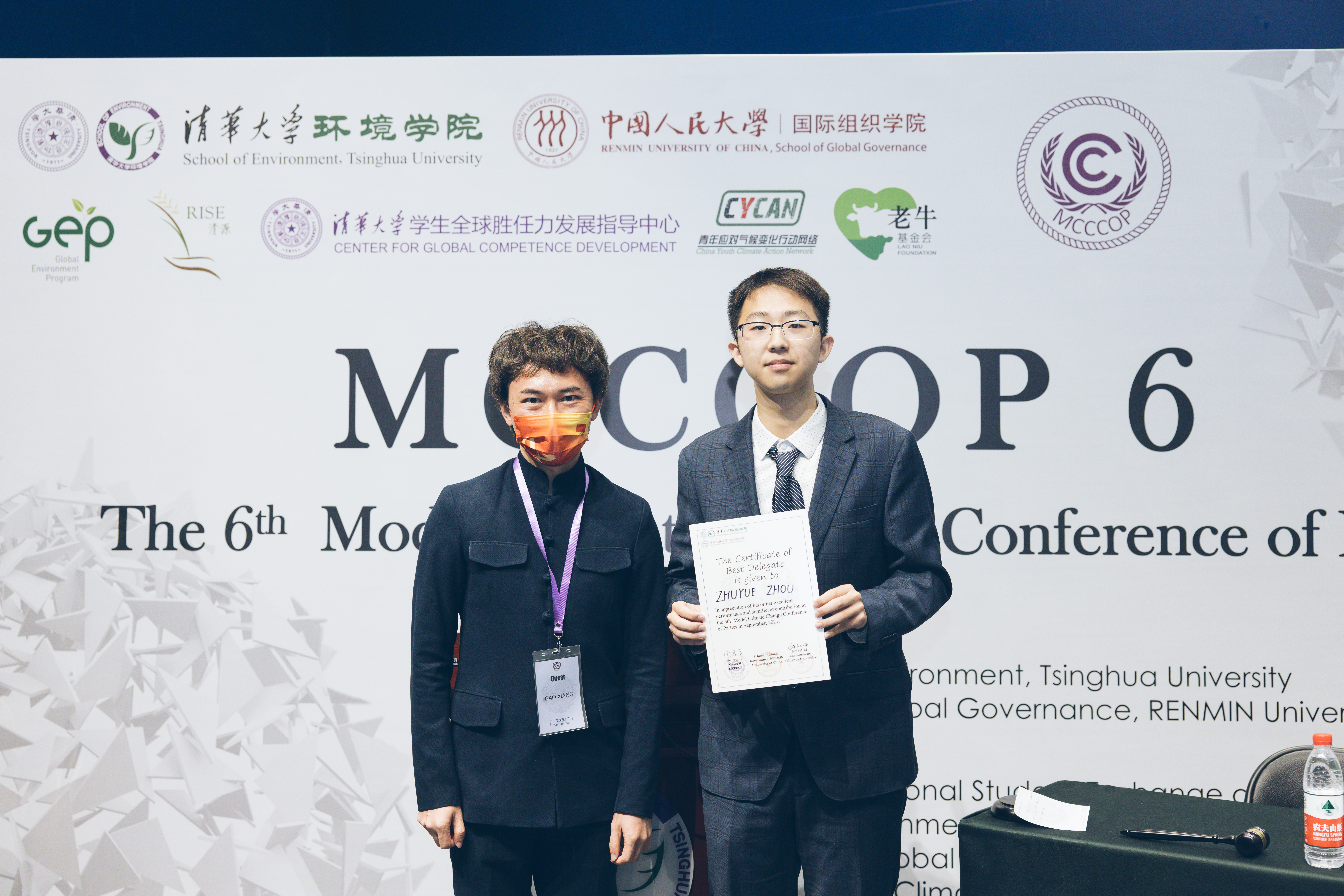
Best Delegate Award winner receiving his award
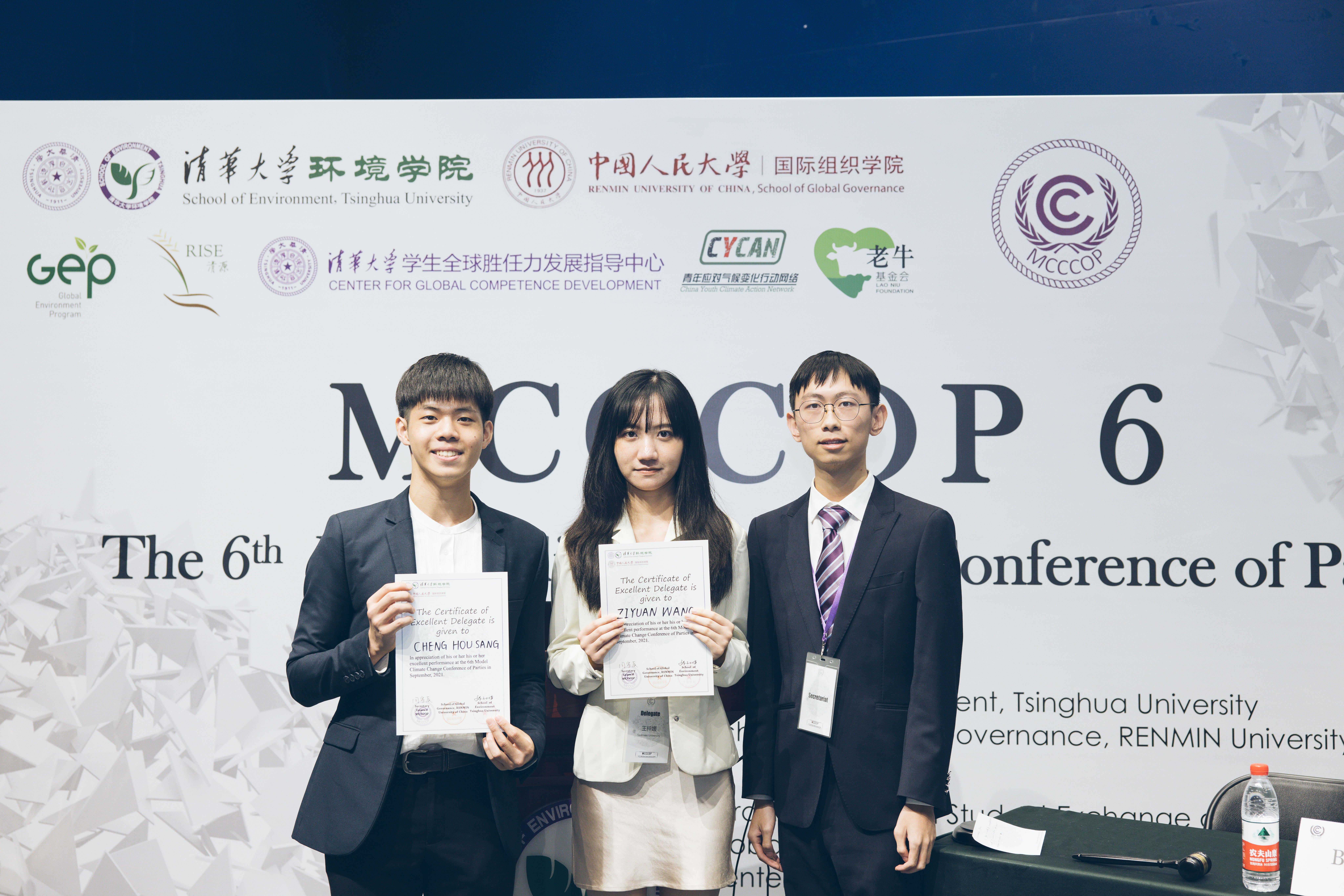
Outstanding Delegate Award winners receiving their awards
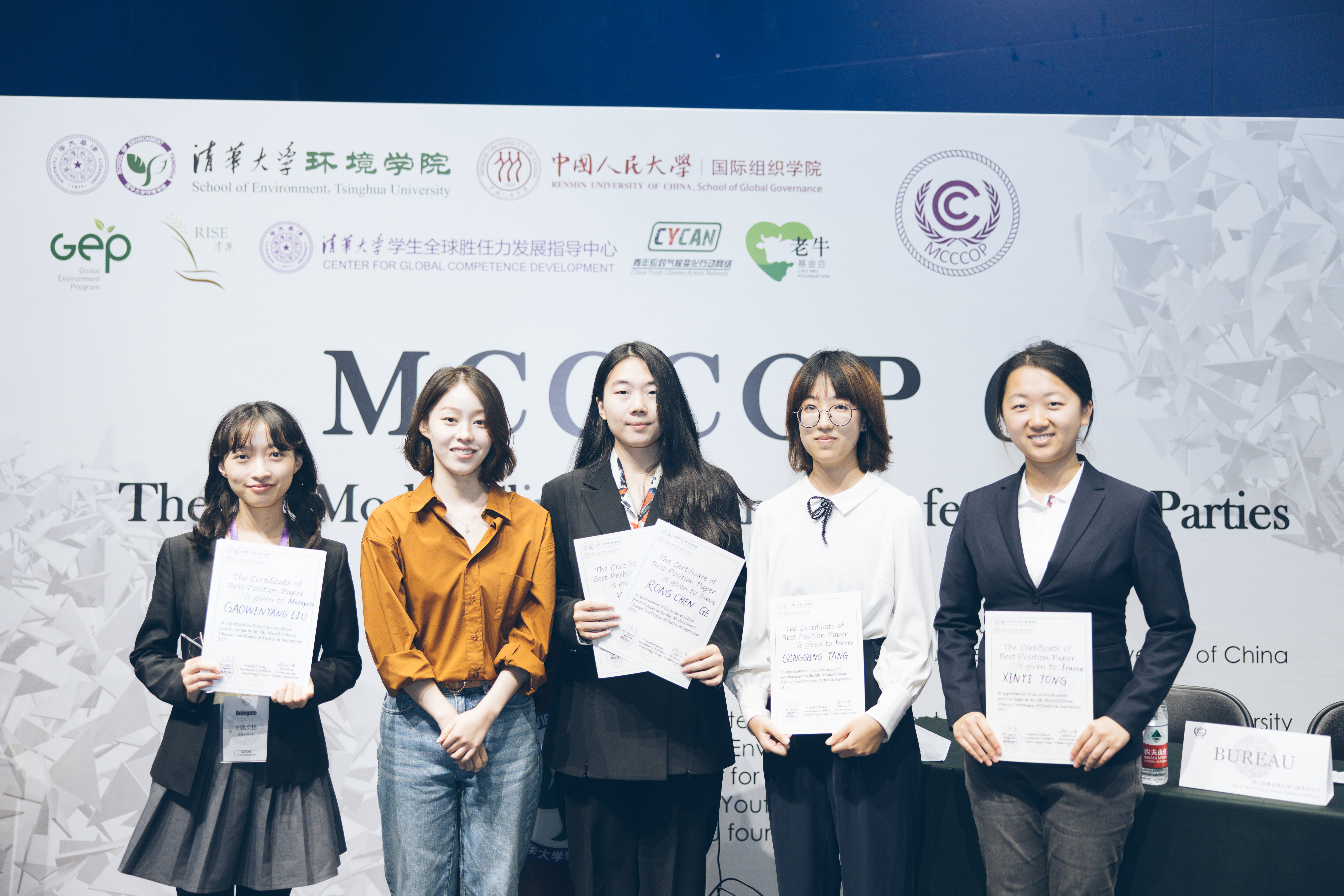
Best Paper Award winners receiving their awards
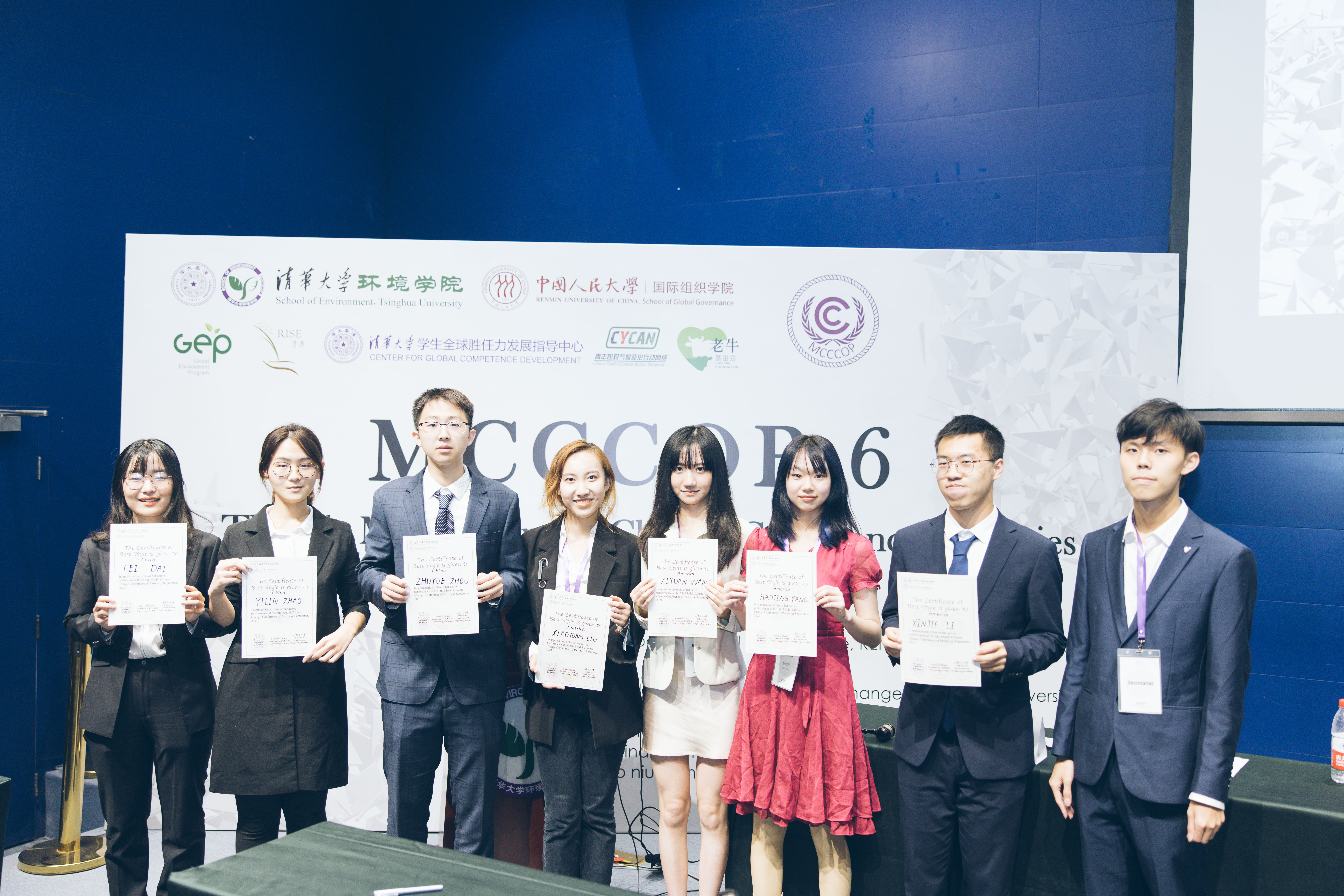
Best Personal Image Award winners receiving their awards
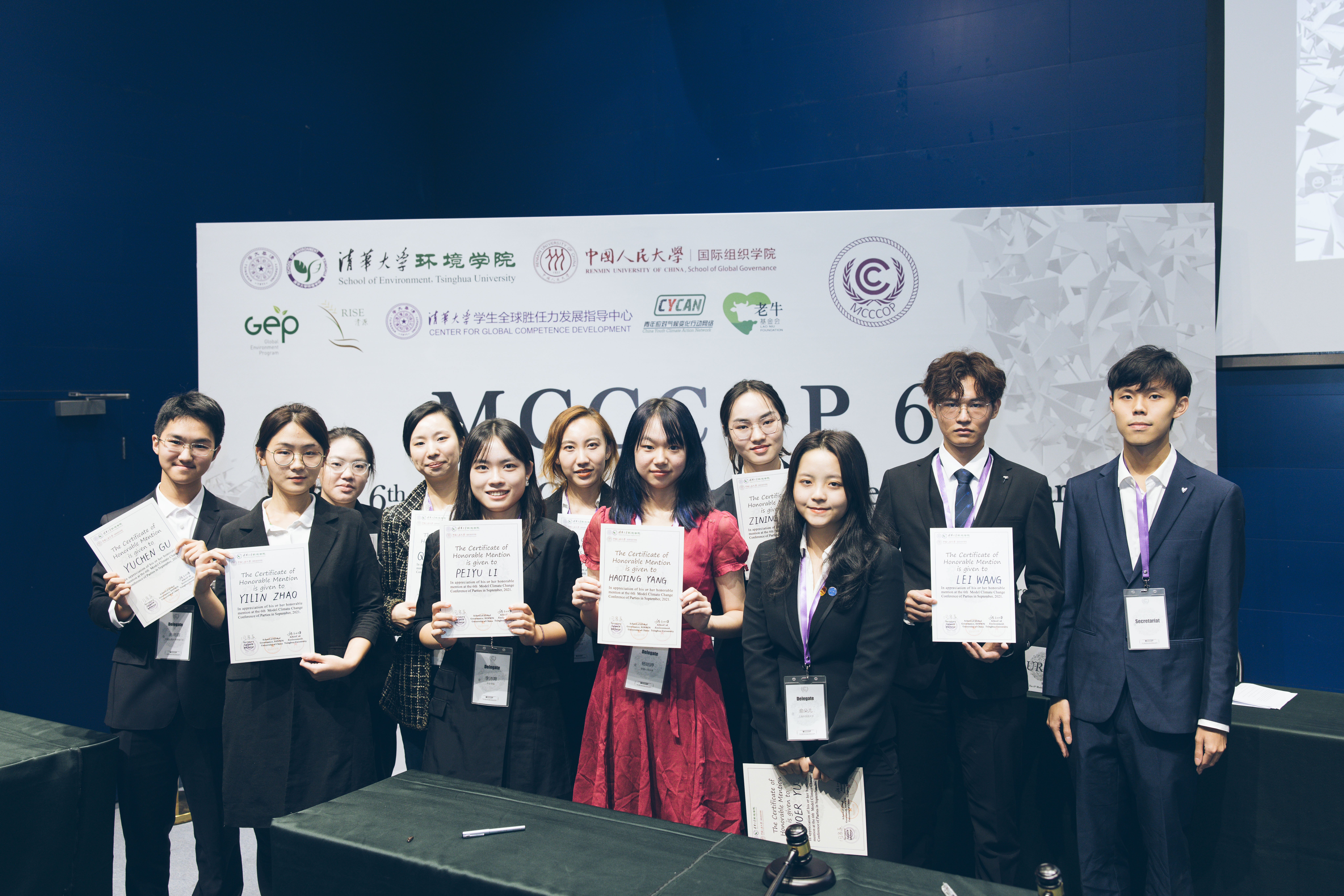
Honorable Mention Award winners receiving their awards
At the closing ceremony, Gao Xiang, Director of the International Policy Department of the NCSC, MEE, made a detailed summary and comments on the students’ performance in the negotiations. Gao has been participating in the UN climate change negotiations as a delegate for the Chinese government since 2009, which made him an expert in negotiations. His vivid explanation gave the students a deeper understanding of the difficulties in climate negotiations. Comparing with his previous conference experience, Gao praised that the student delegates of MCCCOP 6 did a better job than he did back then in terms of professional knowledge, negotiation skills and English proficiency. He hoped that the students could work harder on solving environmental issues, fight for their own country’s interests in real climate change conferences in the future, and eventually promote the global governance of climate change.
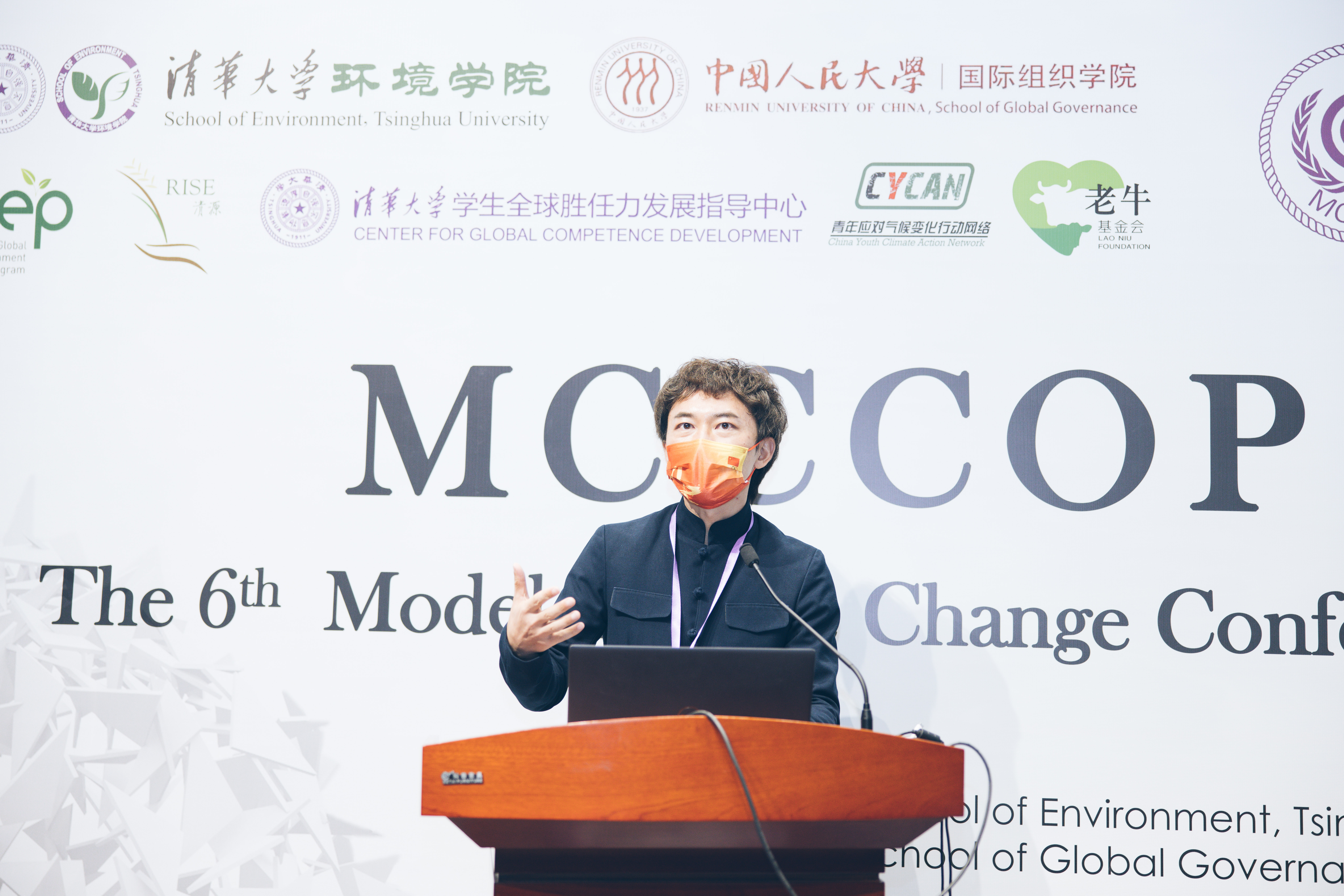
Speech at the Closing Ceremony by Gao Xiang, Director of the International Policy Department of the NCSC, MEE
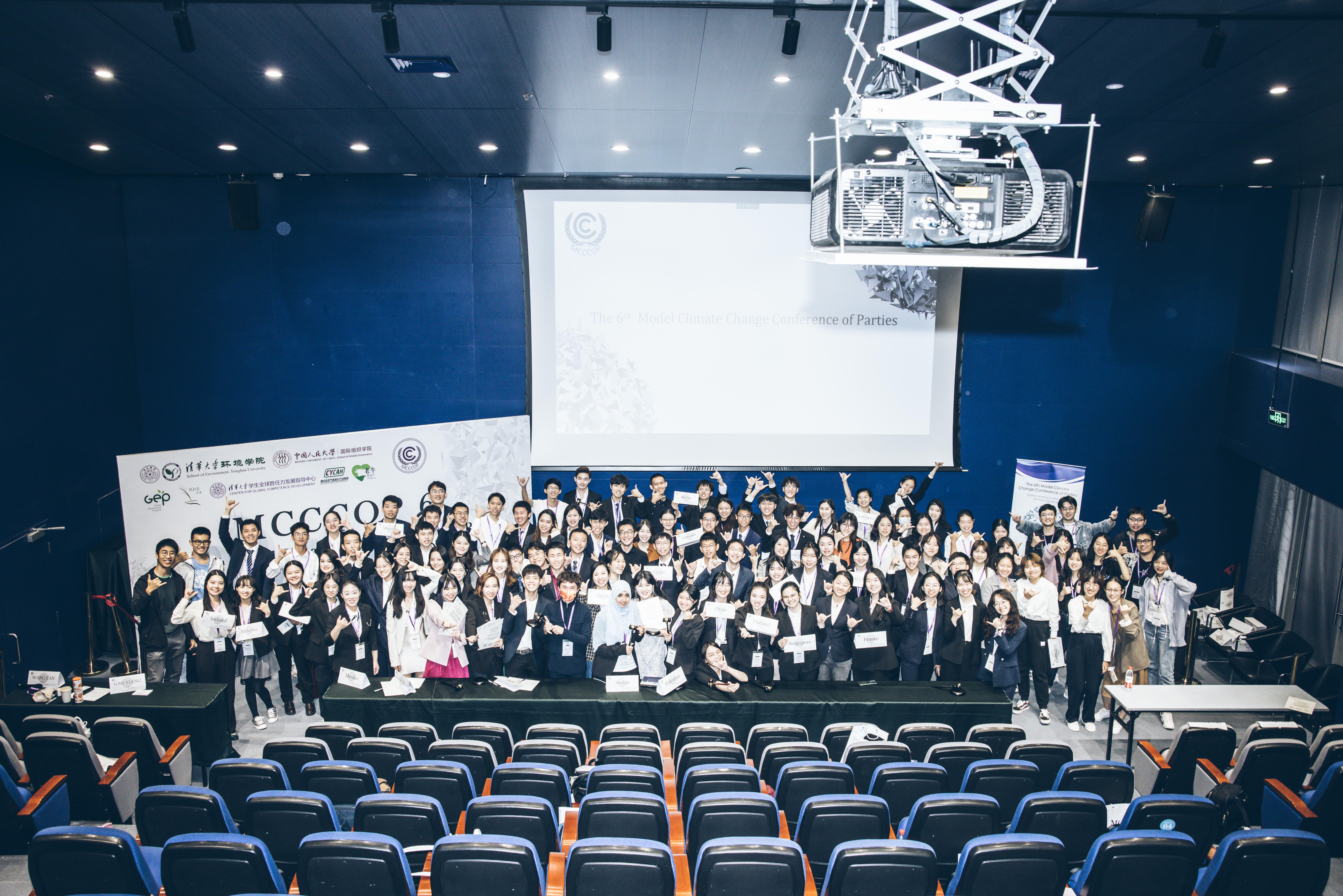
Group Photo of Attendees
Photo by: Gao Yuncheng
Video by: Yang Qingqing



